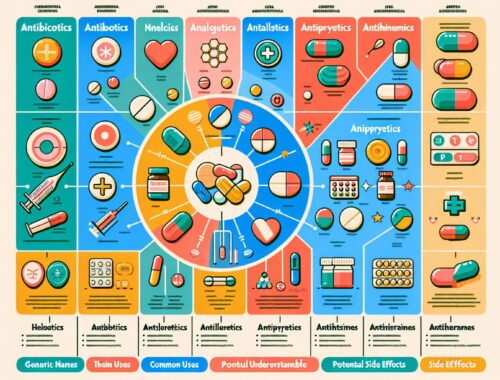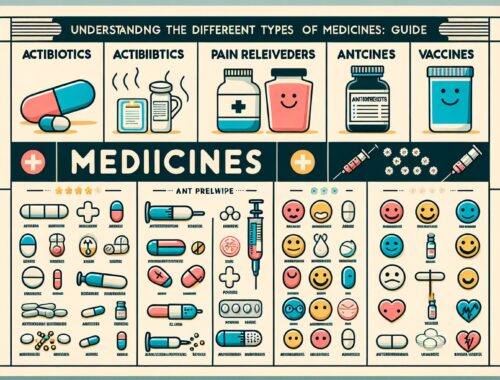
Exploring the World of Medicine: A Guide to Different Types
When it comes to treating illnesses and conditions, there are a wide variety of medicines available to help improve our health and well-being. From over-the-counter pain relievers to prescription medications, the world of medicine is vast and diverse. In this article, we will explore some of the different types of medicines commonly used to treat various ailments.
Over-the-Counter Medicines
Over-the-counter (OTC) medicines are readily available without a prescription and are often used to treat minor ailments such as headaches, colds, allergies, and indigestion. These medications are typically safe and effective when used as directed and can provide relief for a wide range of symptoms. Common examples of OTC medicines include acetaminophen, ibuprofen, antihistamines, and heartburn medications.
Prescription Medications
Prescription medications are drugs that can only be obtained with a prescription from a healthcare provider. These medications are often used to treat more serious conditions such as high blood pressure, diabetes, asthma, and depression. Prescription medications are carefully regulated and must be taken under the supervision of a healthcare professional to ensure their safety and effectiveness.
Antibiotics
Antibiotics are a type of medication used to treat bacterial infections. These medications work by killing or inhibiting the growth of bacteria, helping to clear up infections and prevent them from spreading. It is important to note that antibiotics are not effective against viral infections such as the common cold or flu and should only be used when prescribed by a healthcare provider.
Antidepressants
Antidepressants are medications used to treat depression and other mood disorders. These medications work by altering the levels of chemicals in the brain that affect mood, helping to improve symptoms of depression and anxiety. It is important to work closely with a healthcare provider when taking antidepressants to monitor their effectiveness and any potential side effects.
Immunizations
Immunizations, also known as vaccines, are medications that help protect against infectious diseases by stimulating the body’s immune system to produce antibodies. Vaccines are an important tool in preventing the spread of diseases such as measles, polio, and influenza, and are recommended for people of all ages. It is essential to stay up to date on immunizations to help protect yourself and others from serious illnesses.
Conclusion
The world of medicine is diverse and ever-evolving, with different types of medications available to treat a wide range of conditions. Whether it’s over-the-counter pain relievers, prescription medications for chronic illnesses, antibiotics for bacterial infections, or vaccines to prevent diseases, there is a medication for almost every health need. It is essential to work closely with a healthcare provider to ensure that medications are used safely and effectively. By understanding the different types of medicines available, we can take better control of our health and well-being.
You May Also Like

Understanding the Different Types of Medicines
February 9, 2024
Exploring the Different Types of Medicines
April 17, 2024

